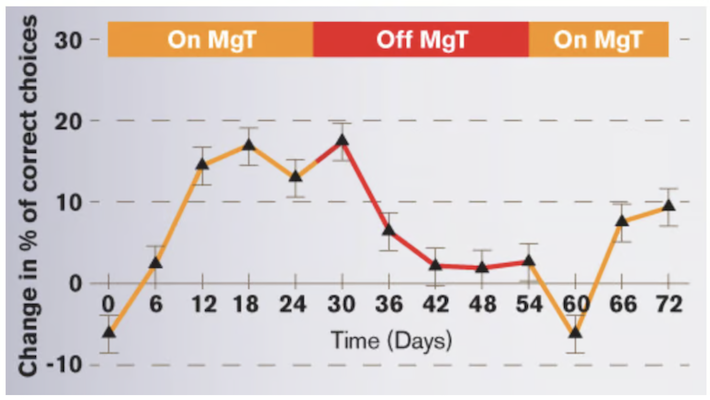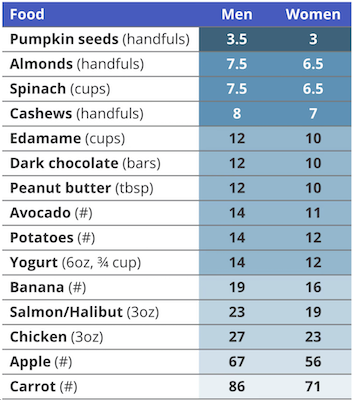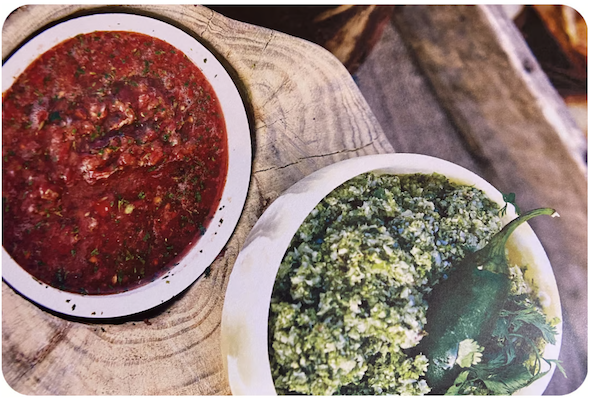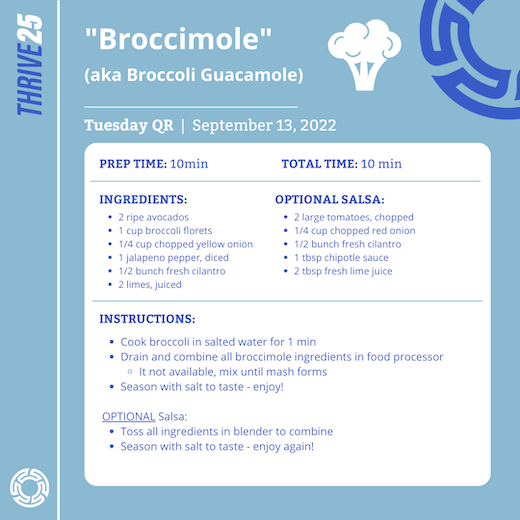Issue #21: Why Magnesium is a Master Mineral
Good morning. It’s Tuesday, September 13th. We're continuing our road through the Core Supplements - today we're covering the magic that is magnesium.
“Magnesium is required by so many vital processes it would be difficult to overestimate its importance to life.”
The number of biochemical reactions where magnesium plays a part. This essential ion is the second most abundant intracellular cation (positively charged ion) after potassium.
The Master Mineral
The Quote and Stat of the Day really say it all.
Magnesium somehow manages to give us more energy and improve athletic performance, and at the same time lower our stress/anxiety.
It supports our blood flow, regulates our blood sugar, positively influences our DNA, and supports our bone/muscle development.
Plus, according to Dr. Andrew Huberman - it also helps us sleep.
Maybe most exciting - a specific form of magnesium (there are at least 11 forms), Magnesium L-threonate (MgT), actually crosses the blood-brain barrier (this is a big deal) and improves our cognitive function. This magnesium stimulates the formation of new brain cells (by increasing BDNF) - improving our memory during sleep and the ability to learn. The chart below shows improved memory when taking MgT vs not.*
Oh and why are we talking about magnesium today? Apparently, it's necessary for Vitamin D to convert to its active form and do all the great things for us that we covered yesterday (Issue #20).
*Check out the full 2010 study on Enhanced Learning/Memory from Brain MgT
What is RDA?
The recommended daily allowance (RDA) of magnesium is 320mg for women and 420mg for men.
So that's how much we need, right?
The RDA was created during WWII to prevent soldier malnutrition, not the amount needed for optimal health. Plus, it's based on weight (one reason why men and women require different amounts). But the RDA hasn't been updated since 1997 and it assumes the average guy only weighs 166 (it's actually 196) and the average woman weighs 133 (it's really 168).
So a new study (2021) shows the recommended amounts are closer to 500mg for women and over 600mg for men - which makes nearly all of us deficient if we're looking at nutrition labels!*
So how much of each food would we need to eat for enough magnesium? Here's a taste:
So if you’re a fan of pumpkin seeds you might be all good - but, we probably need to supplement before we go eating 14 avocados or 67 apples.
Plus, our deteriorating soil has led to a decline of magnesium in the food grown in the U.S.
Oh and if you're like me and sweat a lot, then you’ll lose magnesium more quickly (just like sodium - i.e., salt).
*If you want more info on the background of all things supplements, check out this awesome summary from Chris Kresser.
How to Supplement
If you're due for a physical/blood work, make sure to request a Red Blood Cell Magnesium test. NOTE: 99.5% of our magnesium is in our tissues so this test or the "serum" test can be inaccurate.
According to Dr. Frank Lipman, ideal results are between 5.2-6.5 mg/dL.
The recommended forms of Mg include*:
Magnesium Glycinate
Magnesium Malate
Magnesium Taurate
Magnesium L-threonate (remember unlocks brain potential)
The consensus dosage around 200mg. (Always check with your medical provider!)
**Take 30-60 min before going to bed as it can help relax your mind & body.
*Other forms, such as Mg sulfate, gluconate, oxide (very commonly used due to low cost) have the lowest rate of absorption and effectiveness. Dr. Mark Hyman suggests avoiding these forms if possible.
Product Recs
Remember, find a high-quality, clean supplement brand. Here are some recommended brands/products:*
Pure Encapsulations Magnesium Glycinate - high quality brand and formulation
BiOptimizers Magnesium Breakthrough - includes 7 types of magnesium!
Life Extension Neuro-Mag Magnesium L-Threonate - brain health
*Thrive25 has no affiliation or commercial partnerships with any of the above listed brands
If you can't get enough magnesium talk - this is the absolute best Cheat Sheet I've come across, courtesy of expert Dhru Purohit.
Speed Read
Health & Longevity in the News
7 Facts About Sweat: Apparently we humans sweat more than any other animal (it's not just you). It keeps us cool, protects our skin from pathogens, and prevents skin rashes. Check out why it sometimes smells and attracts those pesky mosquitos.
Is this Back to the Future?: Remember when Doc Brown wore that huge brain electrode hat? Well apparently a new study shows that 20 min of noninvasive electronic brain stimulation through such a wearable might reduce memory loss.
Exercise & COVID: A peer-reviewed study of nearly 2 million people from 10 countries showed a link between regular physical activity and reduced risk of contracting COVID-19, as well as lower severity if you do get it. The maximum protective effect occurred at about 150 min of moderate-intensity exercise or 75 minutes of vigorous-intensity exercise per week. (full story via Yahoo! Finance)
Tuesday QR (Quick Recipe)
Made these multiple times - they are my Go-To post-workout snack. Fills up your hunger and, according to Dr. Fitzgerald, is packed with DNA methylation superfoods!
Back in Issue #3 we talked about broccoli being a superfood. Well here's an easy way to eat more - just add it to your guacamole! Had this recipe over the weekend and it was a hit with the whole family!
Tuesday Bucket List
Just had a few buddies take a trip to Whitefish, MT. I missed the trip, but it's definitely on my list to hike Grinnell Glacier before it's too late!
Anyone done this hike or have any awesome stories/recommendations for Glacier National Park?
Thanks for joining us today - get your wetsuit ready, tomorrow we'll be diving into the ocean.
Check out the latest workout videos on our YouTube channel
Got feedback? Tell us what you think at team@thrive25.com
Want this direct to your inbox? Sign up here
Why Thrive25
We’re 40-something dads that felt our bodies and minds start to slow down and we’re not ready for that. We found too much information on every subject. So we started Thrive25 to transform what we’ve learned into something useful for the rest of us to spend just 3-5 min a day to optimize our health & longevity.
This newsletter is for you and we truly value your feedback. Never hesitate to reach out to us at team@thrive25.com.
To health!
Sign up for free:
The information in this newsletter is for informational purposes only and may not be appropriate or applicable based on your individual circumstances. Thrive25 Labs LLC does not provide medical, professional, or licensed advice. Please connect with your healthcare professional for medical advice specific to your health needs.











